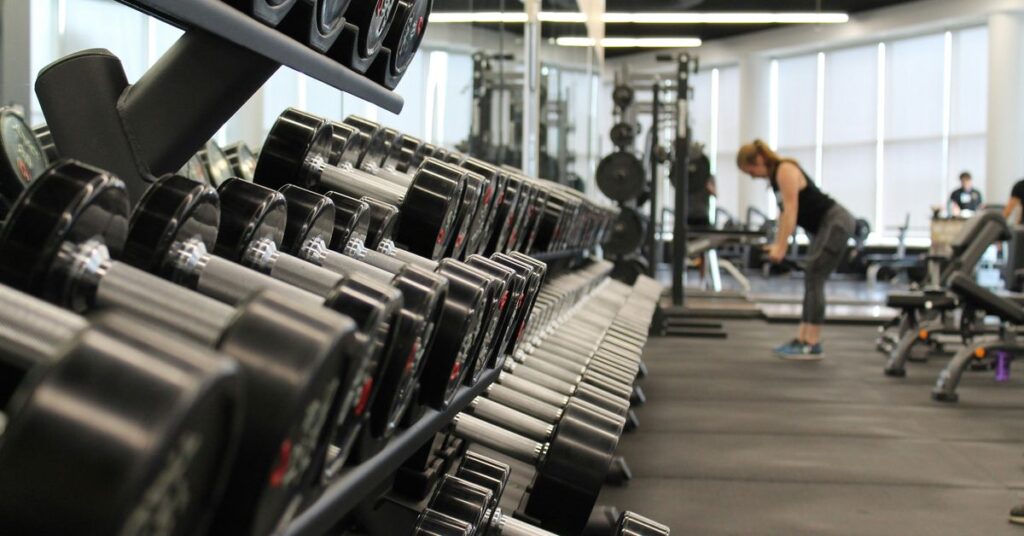Master Your Mind: The Hidden Connection Between Mental Fitness and Peak Performance

Introduction: The Unseen Arena
Ever found yourself rooting for your favorite athlete, heart racing, as they prepare for a critical moment in a game? You might have noticed how the crowd holds its collective breath, waiting for that one shot, one play, or one decision that could make or break the match. But, have you ever stopped to ponder what’s going on inside the athlete’s mind during those high-pressure moments? It’s a fascinating intersection of psychology and performance. Welcome to the world of mental fitness and its profound impact on peak performance.
Understanding Mental Fitness
Mental fitness isn’t just a trendy term tossed around in sports documentaries or self-help books; it’s a vital component of overall performance, whether you’re an elite athlete or just someone trying to maintain a balanced life. In simple terms, mental fitness refers to the state of your mind and how well it functions under various circumstances. It encompasses your ability to manage stress, stay focused, and maintain a positive attitude even when the odds are stacked against you.
Let’s dive deeper into this mind game. Mental fitness can be broken down into several key components:
- Self-awareness: Understanding your thoughts, emotions, and triggers.
- Focus: The ability to concentrate on tasks while ignoring distractions.
- Resilience: Bouncing back from setbacks or failures.
- Emotional regulation: Managing your emotions effectively, especially under pressure.
The Science Behind Mental Fitness
Here’s where it gets interesting—research has shown that mental fitness can lead to improved physical performance. A study published in the Journal of Sports Sciences found that athletes who engaged in mental training, such as visualization and mindfulness, outperformed those who didn’t. It struck me that this isn’t just about being mentally tough; it’s about being smart with one’s mental resources.
Neuroscientists have uncovered intriguing links between the brain’s functioning and athletic performance. For instance, the prefrontal cortex, associated with higher cognitive functions like decision-making and self-control, plays a significant role in an athlete’s ability to perform under pressure. Think of it as the control center, determining how well an athlete can manage stress and focus their attention.
Visualization: Seeing is Believing
One of the most powerful tools in mental fitness is visualization. I remember reading about legendary basketball player Michael Jordan, who was known for visualizing his plays before executing them on the court. He often said, “I can accept failure, everyone fails at something. But I can’t accept not trying.” This philosophy resonates with the concept of visualization—by mentally rehearsing successful outcomes, athletes often find themselves better prepared for actual competition.
Visualization isn’t just for basketball players, either. Swimmers, runners, and even golfers use this technique to enhance their performance. The brain doesn’t differentiate between real experiences and vividly imagined ones. So, when athletes visualize their success, they are essentially training their brains to perform that way in reality.
Mindfulness and Performance
Another mental fitness technique gaining traction is mindfulness. This practice, which involves being present and fully engaged in the moment, can reduce anxiety and enhance focus. According to a study published in Sport, Exercise, and Performance Psychology, athletes who practiced mindfulness reported lower levels of anxiety and improved performance metrics.
Imagine a high-pressure free throw situation; the crowd is buzzing, and the game is on the line. A mindful athlete can focus on the present moment—feeling the ball in their hands, hearing the swish of the net—rather than worrying about the potential consequences of a missed shot. It’s a game-changer, literally.
The Role of Mental Toughness
Mental toughness often gets thrown around as a buzzword in sports, but what does it really mean? It’s not merely about gritting your teeth and pushing through pain, though that’s certainly part of it. Mental toughness is the ability to stay committed to your goals despite challenges. It’s about having that unwavering belief in oneself.
In a survey conducted among elite athletes, a significant number cited mental toughness as a key factor in their success. It’s often the differentiating factor between those who win medals and those who just compete. As sports psychologist Dr. Jim Afremow puts it, “Mental toughness is about being able to perform consistently and confidently, regardless of the circumstances.”
Building Mental Toughness
So, how can one cultivate mental toughness? Here are a few strategies:
- Set specific, challenging goals: Aim high but be realistic.
- Embrace challenges: View obstacles as opportunities to grow.
- Develop a routine: Consistency breeds confidence.
- Learn to manage stress: Techniques like breathing exercises can be invaluable.
Real-Life Applications: Athletes Who Get It
Let’s take a moment to look at some real-life examples of athletes who have successfully integrated mental fitness into their training regimens. One name that pops up time and again is Serena Williams. Known for her fierce competitiveness, she also emphasizes the importance of mental fitness. Williams has openly discussed her struggles with anxiety and how mindfulness practices have helped her maintain focus and composure on the court.
Then there’s Tom Brady, the NFL quarterback who’s built a career on mental resilience. In a league where the average career spans just a few years, Brady’s longevity is astounding—partly due to his commitment to mental fitness. He often reflects on the importance of staying present and managing his emotions, especially during clutch moments.
Coaching and Mental Fitness
Coaches play an integral role in fostering mental fitness among athletes. They’re not just strategists; they’re also psychologists, mentors, and motivators. A good coach recognizes the mental aspects of the game and actively works to develop their athlete’s mental resilience.
Coaching legends like Phil Jackson, who led the Chicago Bulls and Los Angeles Lakers to multiple championships, incorporated mental training into their coaching philosophies. Jackson was a proponent of mindfulness and often encouraged his players to practice meditation as a way to enhance focus and team cohesion. It’s fascinating how the best coaches understand that the mind is just as critical as physical ability.
The Broader Implications
The connection between mental fitness and performance isn’t confined to the arena of sports. In everyday life, the principles of mental fitness can help anyone striving for excellence—whether it’s excelling in a career, managing personal relationships, or simply navigating the complexities of life.
Consider the corporate world, where high-stakes decisions and stressful deadlines abound. Professionals who cultivate mental fitness through techniques like time management, mindfulness, and stress reduction often find themselves more productive and satisfied in their work. It’s all about applying those same principles of focus and resilience to whatever challenges life throws at you.
Practical Tips for Mental Fitness
Now that we’ve dissected the concept of mental fitness, you might be wondering how to incorporate these strategies into your daily life. Here are some practical tips that I’ve found helpful:
- Start with Self-Reflection: Take a few minutes each day to reflect on your thoughts and emotions. Journaling can be a great tool for this.
- Practice Mindfulness: Set aside a few minutes daily to practice mindfulness meditation. Apps like Headspace or Calm can guide you through the process.
- Visualize Your Goals: Spend time visualizing your success, whether it’s finishing a project at work or nailing that presentation.
- Stay Physically Active: Physical exercise is a powerful tool for mental fitness. Find a routine that you enjoy—whether it’s running, yoga, or even just a brisk walk.
Conclusion: Mind Over Matter
As we wrap up this exploration of mental fitness and its connection to peak performance, it’s clear that mastering the mind is not just an add-on to physical training; it’s an essential component. With the right mental tools, anyone can elevate their performance, whether on the field, in the boardroom, or at home.
So, the next time you find yourself in a high-pressure situation, remember to take a deep breath, visualize success, and embrace the moment. After all, in the grand game of life, it’s not just about the body; it’s about the mind—and that’s where the real magic happens.







